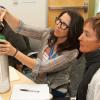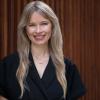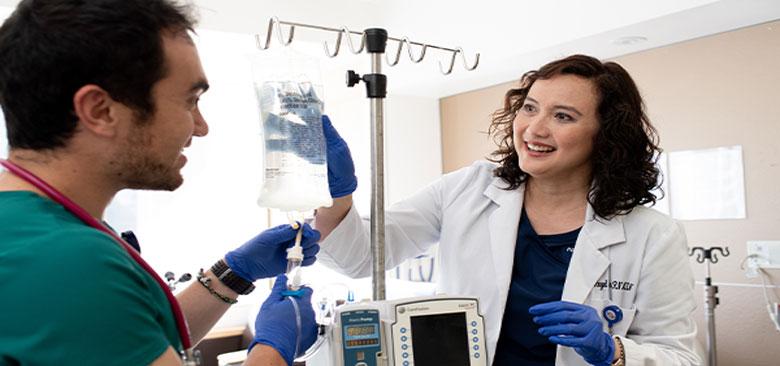
The UCSF School of Nursing is meeting the growing need for doctorally prepared nurses, offering streamlined approaches for nurses to attain the profession's highest degree. (Photo credit: Barbara Ries)
Streamlining the Path to the Doctoral Degree
By fall 2024, the UCSF School of Nursing plans to launch streamlined academic pathways to meet the growing demand for doctorally prepared nurses who will lead transformative change in an increasingly complex health care arena.
The expansion of the School’s doctoral education will provide multiple avenues for nurses, regardless of their current education level, to attain the profession’s highest degree. And the expansion of the DNP program in particular aligns with guidance from the National Organization of Nurse Practitioner Faculties to shift all entry-level nurse practitioner education to the DNP degree by 2025.
Under the new pathways:
- Post-baccalaureate students with no nursing background will be able to earn an RN license and seamlessly continue their journey to their terminal degree.
- Post-baccalaureate registered nurses will be able to choose one of 11 specialties in which to earn a DNP degree.
- Master’s-prepared nurses who wish to obtain additional Advanced Practice Registered Nurse (APRN) training and certification can enroll in new post-master’s APRN/DNP tracks, selecting from 11 specialties.
The Post-Master’s APRN/DNP and Graduate Entry Program in Nursing (GEPN) to DNP/PhD pathways will launch in 2023, followed by the Post-BSN to DNP pathway in 2024, pending final university approval.
“As the School’s mission is to educate diverse health leaders, conduct research, advance nursing and inter-professional practice, and provide public service with a focus on promoting 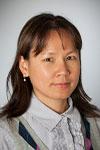 Jyu-Lin Chen health quality and equity, we need to align programs and develop curriculum to meet not only the national standards but also lead the path to excellence in education, research and community service,” said Jyu-Lin Chen, who is leading the DNP program through December when KT Waxman will become the new director.
Jyu-Lin Chen health quality and equity, we need to align programs and develop curriculum to meet not only the national standards but also lead the path to excellence in education, research and community service,” said Jyu-Lin Chen, who is leading the DNP program through December when KT Waxman will become the new director.
Mary Lynch, director of the Master of Science program, added, “This is the right time for the School to create these pathways and it comes after careful, deliberate planning. Our new pathways will enable our NPs to be active decision-makers in health care change.”
The School will continue to offer its existing PhD program in both Nursing and Sociology to post-baccalaureate and post-master’s nurses who seek to advance research 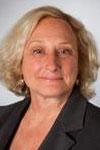 Mary Lynch and science.
Mary Lynch and science.
Welcoming Non-APRNs
The new pathways are on top of other recent changes the School has implemented to ensure the program is meeting health care and workforce needs. This year, the School expanded DNP admission to non-APRNs.
Carolyn Bogard, manager of care coordination, who leads a transitions of care program for high risk older adults at Stanford Health Care, is a non-APRN who began the DNP program in April. When the School opened the DNP to non-APRNs, she jumped at the opportunity.
“I want to continue to advance my career and pursue nursing leadership positions where I can impact nursing practice and care delivery for large patient populations,” said Bogard, who earned a Master of Science in Healthcare Administration and Interprofessional Leadership from the School in 2017. “The DNP will help build my existing skills and expand my knowledge.”
The support Bogard has received from DNP faculty has been exceptional, she said.
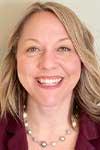 Carolyn Bogard “You feel a close connection to your professors,” she said. “The amount of work is significant, but they are incredibly responsive to your needs and you feel the professors are invested in your growth and development.”
Carolyn Bogard “You feel a close connection to your professors,” she said. “The amount of work is significant, but they are incredibly responsive to your needs and you feel the professors are invested in your growth and development.”
Bogard also enjoys the intimate size of her cohort and the collaborative environment fostered by the faculty.
“The student quality is high-caliber,” said Bogard, who has held various managerial positions during her 18 years at Stanford Health Care. “They’re leaders in their areas and bring interesting perspectives. We’re certainly learning from one another.”
An Entrepreneurial Spirit
Some of these “high-caliber” DNP graduates are taking entrepreneurial approaches to transforming health care.
Milan Chavarkar (DNP ’19) founded Lotus Integrative Health & Nursing in March 2020. Lotus specializes in integrative and functional medicine, which takes a holistic approach — mind, body and spirit — to healing.
Chavarkar was motivated to create Lotus thanks to an entrepreneurship course she took in the DNP program.
“Nurses know what patients want,” said Chavarkar, who has more than 20 years of experience in family practice nursing. “Who better than a nurse to provide services like this?” 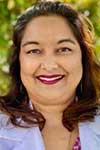 Milan Chavarkar
Milan Chavarkar
The skills and knowledge Chavarkar gained in the DNP program gave her the confidence to start her business and the strength to navigate early hurdles. Chavarkar launched Lotus just a few weeks before the COVID-19 pandemic began.
“The DNP gave me the framework to know how to implement and evaluate changes,” she said. “Now, I’m always thinking how I’m going to evaluate my business to be more effective and provide better clinical care.”
Thanks to Chavarkar’s positive experience in the DNP program, she remains connected with the School, serving as a preceptor in the family nurse practitioner specialty and as a guest speaker to DNP students.
“I absolutely loved the program,” Chavarkar said. “It was a phenomenal experience.”


